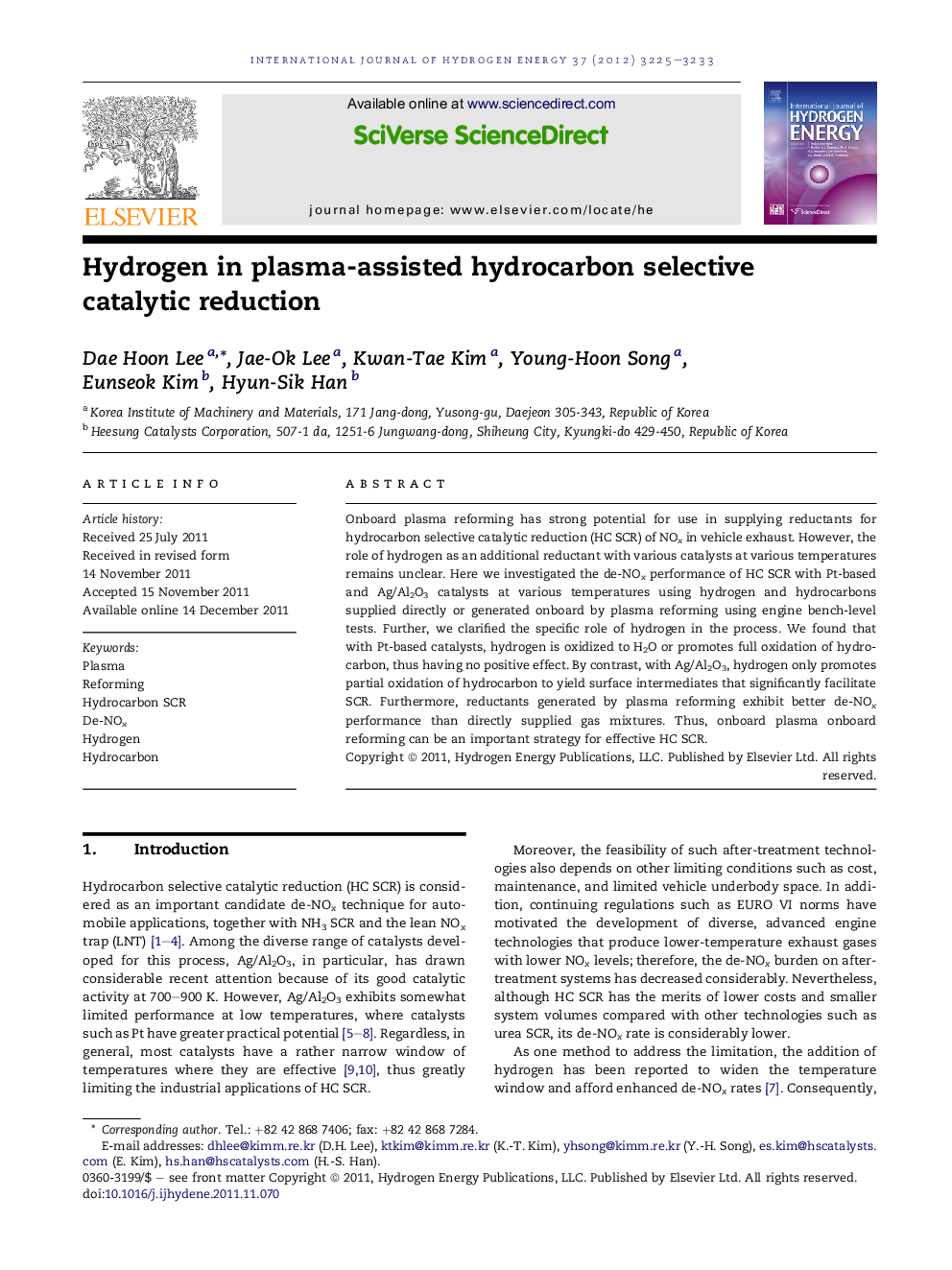| Article ID | Journal | Published Year | Pages | File Type |
|---|---|---|---|---|
| 1282327 | International Journal of Hydrogen Energy | 2012 | 9 Pages |
Onboard plasma reforming has strong potential for use in supplying reductants for hydrocarbon selective catalytic reduction (HC SCR) of NOx in vehicle exhaust. However, the role of hydrogen as an additional reductant with various catalysts at various temperatures remains unclear. Here we investigated the de-NOx performance of HC SCR with Pt-based and Ag/Al2O3 catalysts at various temperatures using hydrogen and hydrocarbons supplied directly or generated onboard by plasma reforming using engine bench-level tests. Further, we clarified the specific role of hydrogen in the process. We found that with Pt-based catalysts, hydrogen is oxidized to H2O or promotes full oxidation of hydrocarbon, thus having no positive effect. By contrast, with Ag/Al2O3, hydrogen only promotes partial oxidation of hydrocarbon to yield surface intermediates that significantly facilitate SCR. Furthermore, reductants generated by plasma reforming exhibit better de-NOx performance than directly supplied gas mixtures. Thus, onboard plasma onboard reforming can be an important strategy for effective HC SCR.
► The effect of hydrogen in plasma-assisted HC SCR has been investigated. ► Hydrogen enhances partial oxidation of hydrocarbon species. ► Partially oxidized hydrocarbon mainly enhances de-NOx process. ► Direct reduction of NOx by hydrogen is not a main reaction pathway. ► Plasma itself enhances partial oxidation process.
